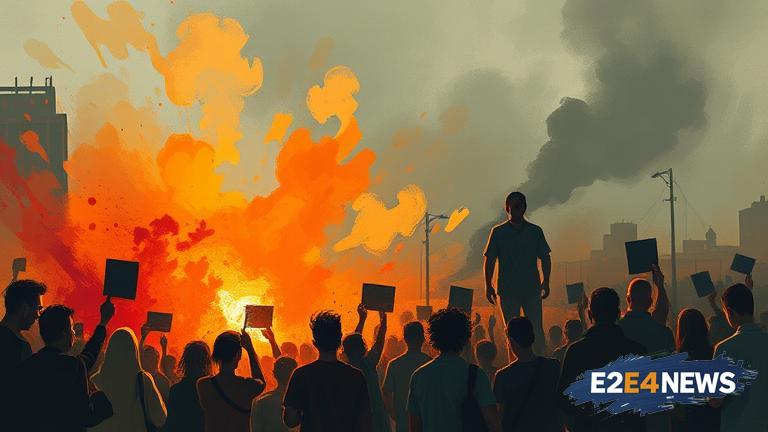The #MeToo movement, which began as a rallying cry against sexual harassment and assault, has evolved into a broader cultural phenomenon, sparking a national conversation about power, privilege, and consent. However, as the movement has gained momentum, it has also faced criticism and backlash, with some arguing that it has gone too far and unfairly targeted men. This backlash has been particularly pronounced among certain segments of the population, who feel that the movement has unfairly maligned and alienated men, perpetuating a narrative of toxic masculinity. Proponents of the movement argue that this backlash is a predictable response to the disruption of patriarchal norms and power structures, and that it is essential to continue pushing forward to create a more equitable and just society. Despite the challenges, the #MeToo movement has achieved significant successes, including the downfall of high-profile predators and the passage of new laws and policies aimed at preventing harassment and assault. Nevertheless, the movement’s impact has also been felt in more subtle ways, such as the shifting of cultural norms and the reevaluation of traditional masculinity. As the conversation around #MeToo continues to evolve, it is essential to consider the complexities and nuances of the issue, including the ways in which societal expectations and power dynamics contribute to the perpetuation of toxic masculinity. Furthermore, it is crucial to recognize that the alienation of toxic masculinity is not a zero-sum game, where one group’s gain must come at the expense of another. Rather, it is a necessary step towards creating a more inclusive and equitable society, where all individuals can thrive and reach their full potential. The cultural reckoning sparked by #MeToo has also highlighted the need for greater empathy and understanding, particularly among men, who must confront and challenge their own biases and privilege. Ultimately, the success of the #MeToo movement will depend on its ability to create a more just and equitable society, where all individuals can live without fear of harassment or assault. This will require a sustained effort to challenge and dismantle the power structures and societal norms that have perpetuated toxic masculinity for so long. As the movement continues to evolve, it is essential to prioritize intersectionality and inclusivity, recognizing that the experiences of women and other marginalized groups are diverse and multifaceted. By doing so, we can create a more nuanced and comprehensive understanding of the issues at hand, and work towards a more just and equitable society for all. The #MeToo movement has also sparked a broader conversation about the role of men in the fight against toxic masculinity, and the ways in which they can work to dismantle patriarchal norms and power structures. This conversation has been marked by both optimism and skepticism, with some arguing that men have a critical role to play in the movement, while others believe that their involvement is unnecessary or even counterproductive. Despite these challenges, it is clear that the #MeToo movement has sparked a cultural reckoning, one that will continue to shape and evolve in the years to come. As we move forward, it is essential to prioritize empathy, understanding, and inclusivity, recognizing that the fight against toxic masculinity is a collective effort that requires the participation and engagement of all individuals. The movement’s impact has also been felt in the realm of popular culture, where it has inspired a new wave of films, television shows, and books that explore the complexities of masculinity and power. These cultural artifacts have helped to further the conversation around #MeToo, providing a platform for marginalized voices and perspectives to be heard. Nevertheless, the movement’s cultural impact has also been subject to criticism and backlash, with some arguing that it has been co-opted by mainstream culture and stripped of its radical potential. Despite these challenges, it is clear that the #MeToo movement has sparked a cultural reckoning, one that will continue to shape and evolve in the years to come. As we move forward, it is essential to prioritize empathy, understanding, and inclusivity, recognizing that the fight against toxic masculinity is a collective effort that requires the participation and engagement of all individuals. The movement’s success will depend on its ability to create a more just and equitable society, where all individuals can live without fear of harassment or assault. This will require a sustained effort to challenge and dismantle the power structures and societal norms that have perpetuated toxic masculinity for so long. By working together and prioritizing intersectionality and inclusivity, we can create a more nuanced and comprehensive understanding of the issues at hand, and work towards a more just and equitable society for all.
